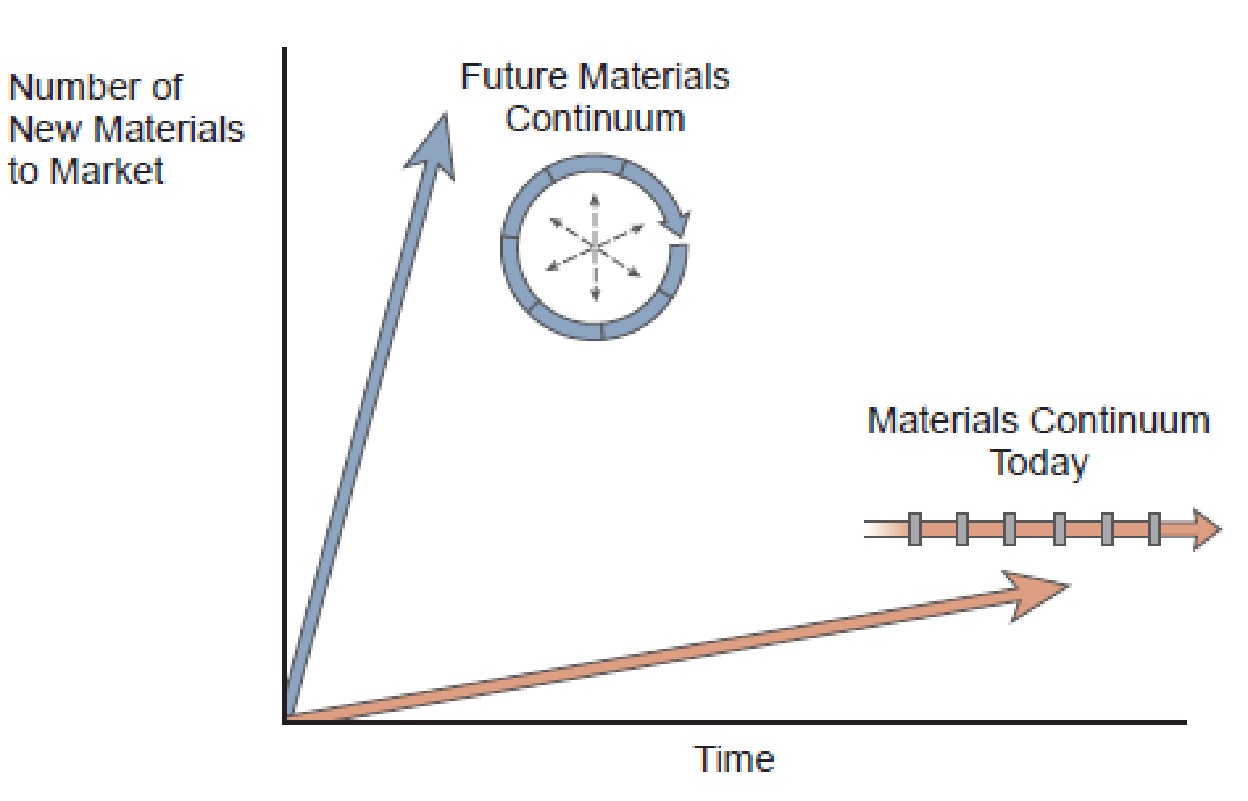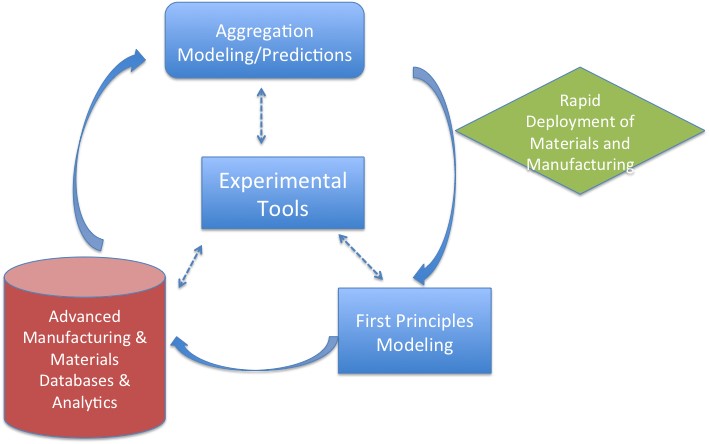The discovery and development of advanced energy materials and their large-scale, low-cost manufacturing and deployment is and will be a critical research need for the foreseeable future for economic growth of any region. Unfortunately, the current strategy used for discovery to development uses a linear methodology of discovery-manufacturing-verification which takes over twenty years or more for translation to market. The White House and several federal agencies have outlined a materials genome initiative specifically to accelerate the discovery and development of new advanced materials in conjunction with advanced manufacturing to reduce the time required for their deployment to market (Figure 1, Holdren, J. P. Materials Genome Initiative Strategic Plan. Initiative, 2014). It is predicted that if one combines materials genome type algorithms to materials/manufacturing development continuum methodology, the time scales for discovery to deployment of both materials and advanced manufacturing will reduce by half to less than 10 years.

Figure 1. Acceleration of manufacturing to practice with a new materials continuum strategy (adapted from Holdren et al, 2014).
Conn Center's Materials Genome Initiative
The future materials/manufacturing discovery to deployment continuum methodology will involve a strategy outlined in the Figure 2 and will rely on: combinatorial experimental tools, rapid device screening facilities, computational intelligence methods to analyze experimental data, and advanced low cost and scalable manufacturing. Specifically, they include (a) combinatorial experimental tools for preparing and characterizing materials for structure-property-process-functionality data sets; (b) infrastructure necessary for an experimental data repository with data flowing directly from lab note books and the web-based analysis tools; and (c) discovery and manufacturing roadmaps for specific challenges. This new infrastructure design will facilitate workforce development for advanced manufacturing and enable the state of Kentucky to establish an economic ecosystem for the next generation manufacturing.

Figure 2. Proposed materials genome based discovery to manufacturing continuum strategy for rapid deployment of new materials in to manufacturing.




